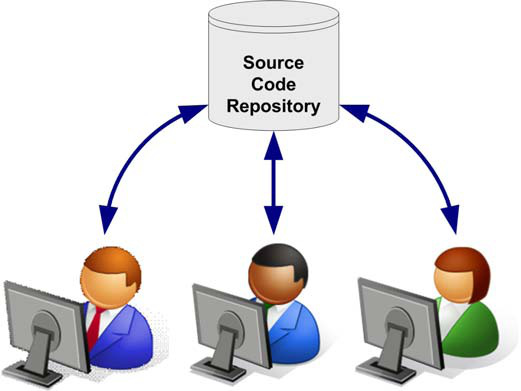In the realm of software development, understanding the intricacies of source code repositories is paramount. These repositories serve as the backbone of collaborative coding efforts, providing developers with a centralized platform to store, manage, and version control their code. However, for many newcomers to the world of programming, source code repositories can seem like a complex and daunting concept. In this blog post, we'll demystify source code repositories, unraveling their mysteries and equipping you with the knowledge you need to navigate them effectively.
Understanding the Basics of Source Code Repositories
At its core, a source code repository is a storage facility for code, typically used in conjunction with version control software. Here are some key concepts to grasp:
Version Control: One of the primary functions of a source code repository is version control, which allows developers to track changes to their code over time. This ensures that previous versions of the code are preserved and provides a mechanism for collaboration among multiple developers.
Collaborative Development: Source code repositories enable collaborative development by allowing multiple developers to work on the same codebase simultaneously. Through features such as branching, merging, and pull requests, developers can coordinate their efforts and contribute to the project in a controlled and organized manner.
History and Audit Trail: By maintaining a detailed history of changes, source code repositories provide an audit trail that helps developers understand the evolution of their codebase. This history can be invaluable for troubleshooting issues, identifying bugs, and understanding the rationale behind specific changes.
Access Control: To ensure the security and integrity of the codebase, source code repositories typically include access control mechanisms that allow developers to define permissions and restrict access to certain parts of the code. This helps prevent unauthorized modifications and ensures that only trusted individuals can make changes to the code.
Popular Source Code Repository Platforms
Several platforms offer source code repository services, each with its own set of features and capabilities. Here are some of the most popular ones:
GitHub: Perhaps the most well-known source code repository platform, GitHub is widely used by developers for hosting open-source projects and collaborating with others. With features such as pull requests, issue tracking, and wikis, GitHub provides a comprehensive set of tools for collaborative development.
GitLab: GitLab is another popular source code repository platform that offers both self-hosted and cloud-based solutions. In addition to version control and collaboration features, GitLab includes built-in continuous integration and deployment capabilities, making it a favorite among DevOps teams.
Bitbucket: Owned by Atlassian, Bitbucket is a source code repository platform that offers both Git and Mercurial hosting. With features such as code reviews, branch permissions, and integrations with other Atlassian products like Jira and Confluence, Bitbucket is a versatile choice for teams of all sizes.
Best Practices for Using Source Code Repositories
To make the most of source code repositories, consider the following best practices:
Use Descriptive Commit Messages: When making changes to the codebase, use descriptive commit messages that clearly explain the purpose of the change. This makes it easier for other developers to understand the context of the change and facilitates collaboration.
Regularly Merge Changes: To keep the codebase up-to-date and minimize conflicts, regularly merge changes from other developers into your local branch. This ensures that everyone is working with the latest version of the code and helps prevent divergence between branches.
Document Your Code: Good documentation is essential for maintaining a clean and understandable codebase. Use comments, README files, and documentation tools to provide context, instructions, and explanations for your code.
Backup Your Repository: To safeguard against data loss, regularly backup your source code repository to an external location. This ensures that you have a copy of your code in case of hardware failure, accidental deletion, or other unforeseen events.
Source code repositories play a critical role in modern software development, providing developers with a centralized platform for collaboration, version control, and code management. By understanding the basics of source code repositories and following best practices for their use, developers can streamline their workflow, improve collaboration, and ensure the integrity of their codebase. So whether you're a seasoned developer or just starting out, take the time to familiarize yourself with source code repositories and unlock their full potential in your projects.





Comments